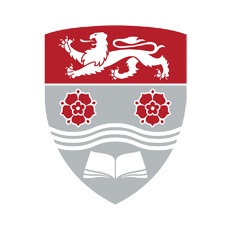fees waived
Linguistics, BA (Hons), with industry placement
Lancaster University, United Kingdom
Subject ranking
UK / The Times 3rd
UK / The Times 3rd
UK / Guardian 4th
Costs
food & rentS$16.8K / year
Entry requirements
Scholarships
Limited quantity
Limited quantity
Limited quantity
Information
Code
Intakes
Website (External)
Programmes
Information
Duration
2028
What is the relationship between accents and social status? How can voice recognition technologies be improved? How does a child learn language? What do the world’s languages have in common, and how are they different? Linguistics offers a fresh insight into the human mind, combining arts and sciences into one captivating subject.Our approach to linguistics brings to life the theory through exploring real-world implications and applications. We are one of the country’s largest Linguistics and English Language departments, meaning that we have a wide range of optional modules available to you throughout your degree programme. Our world-leading academics cover a very wide range of language study specialisms, and our students benefit from their expertise in lectures, seminars, tutorials, and supervisions. They will teach you from day one in small classes designed to challenge you as a linguist.Whether you want to understand more about accents or the benefits of multilingualism, how people communicate across cultures or how politicians use words to persuade, we have expertise across a very wide spectrum. We have a large Phonetics Lab and Psycholinguistics Lab which students are encouraged to use throughout their degree programme.In your first year, the Linguistics module gives you an introduction to the basics, touching on many intriguing and inspiring topics. You also take two other subjects to complement your major. A popular choice for one of these is English Language, but you could select subjects from other related disciplines.In addition to the core courses about the sounds and structures of language, there are many exciting options for your second and final year. They include Child Language Acquisition, Corporate Communication, Language Change, Forensic Linguistics and Stylistics. In your final year, you’ll also write your dissertation, exploring a topic that particularly interests you. You will be supported by a supervisor, one of our staff who has expertise in the area you choose to research.A Linguistics degree is well-suited for careers in education, publishing, the media and information technology. It is highly valued in fields involving international communication, such as science, trade and international relations. We offer a Linguistics degree which teaches you the skills of data analysis, academic writing, and argumentation, and we are confident that our teaching, combined with your willingness to learn, will put you in a strong position to move forward in your career.To prepare students for their work placement year, our Careers and Placements Team will provide advice and guidance on: the skills required to create effective CVs, cover letters and applications; tips and techniques on how to make an impact at interviews and assessment centres; how to create a relevant digital profile; and how to research employers and career sectors of interest. In addition, there is great emphasis placed upon developing self-awareness and on how to present yourself in a professional manner to employers. This optional provision will be delivered via a blend of traditional and digital methods including face-to-face workshops, online webinars, e-courses and 1:1 appointments.The University will use all reasonable effort to support you to find a suitable placement for your studies. While a placement role may not be available in a field or organisation that is directly related to your academic studies or career aspirations, all placement roles offer valuable experience of working at a graduate level and gaining a range of professional skills. If you are unsuccessful in securing a suitable placement for your third year, you will be able to transfer to the equivalent non-placement degree scheme and continue with your studies at Lancaster, finishing your degree after your third year.
A local representative of Lancaster University in Singapore is available online to assist you with enquiries about this course.

